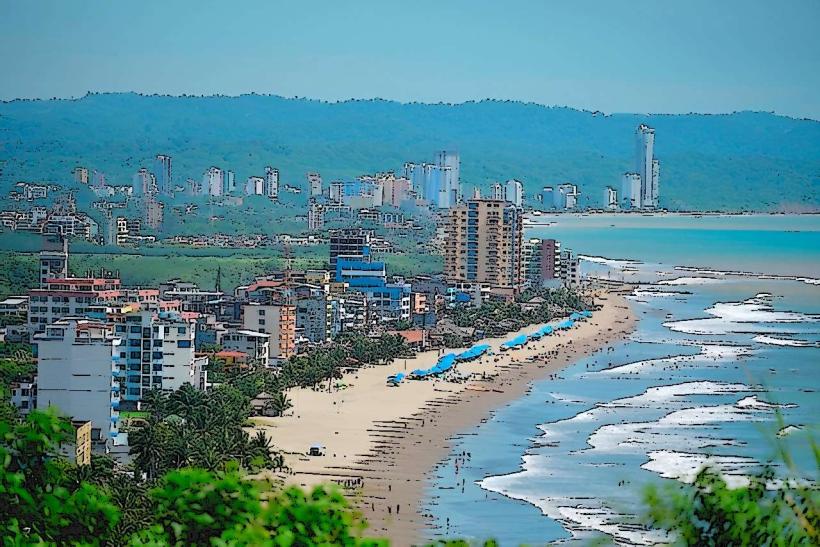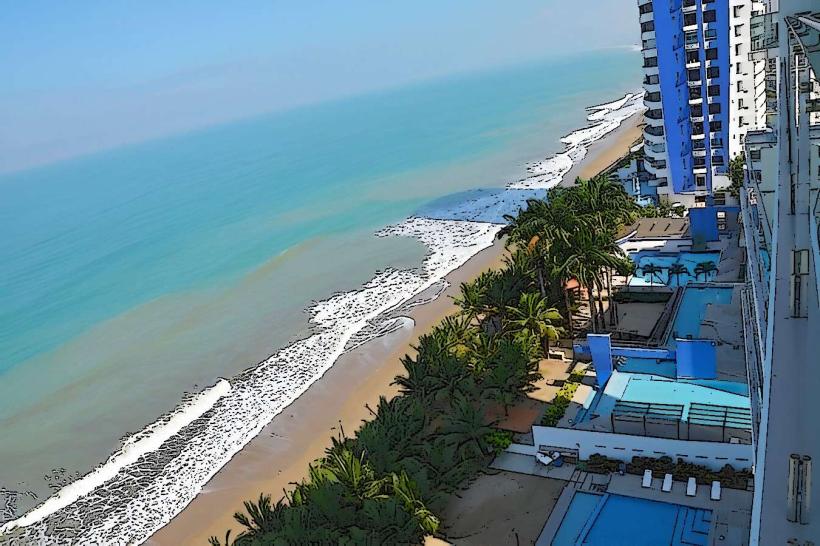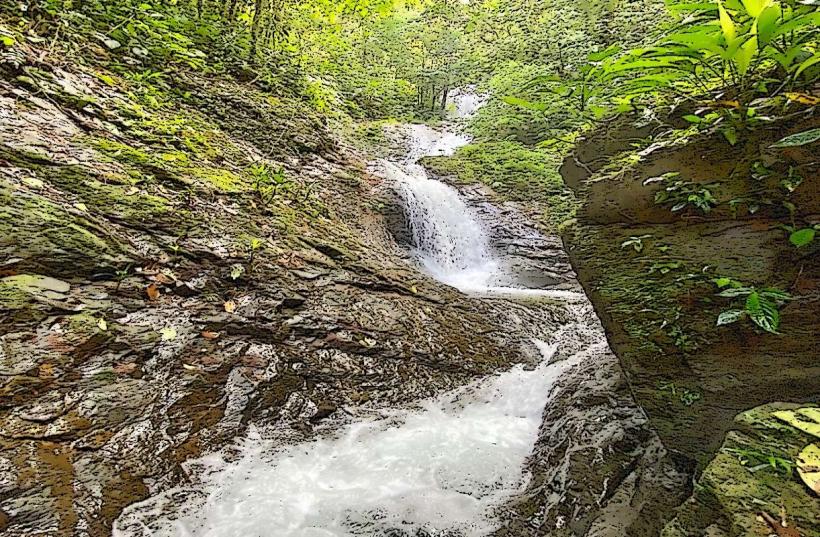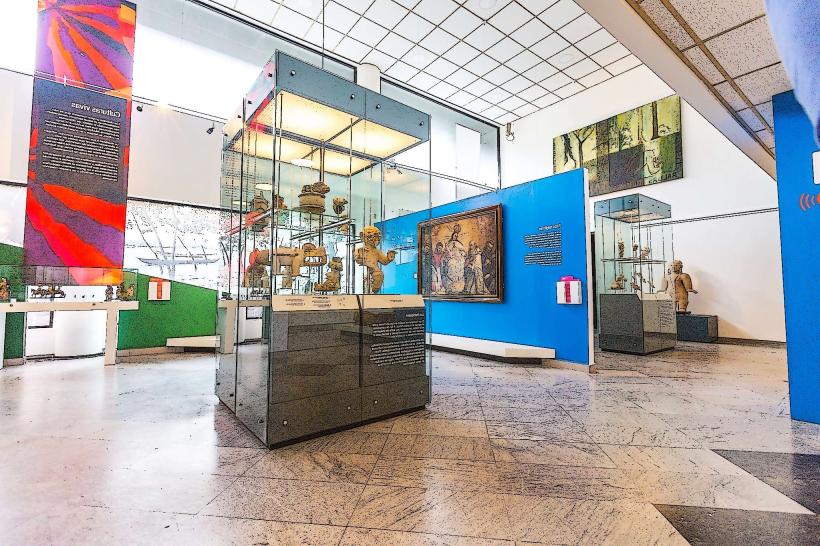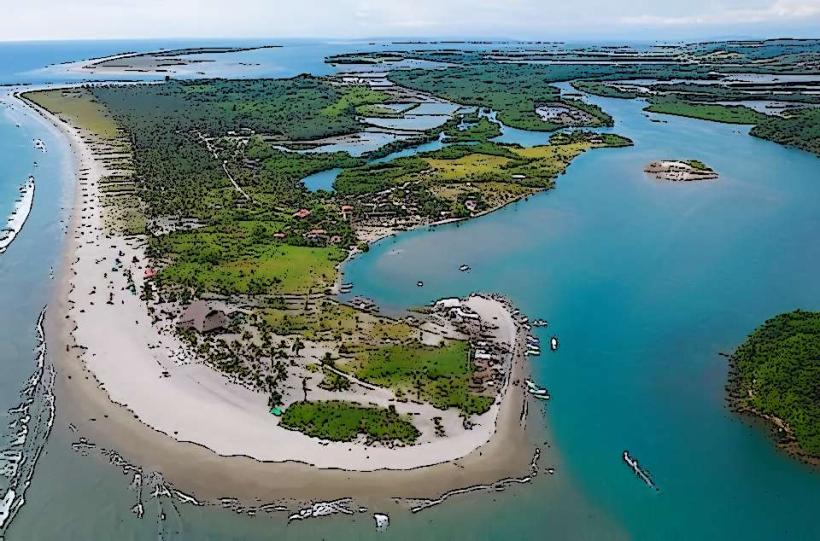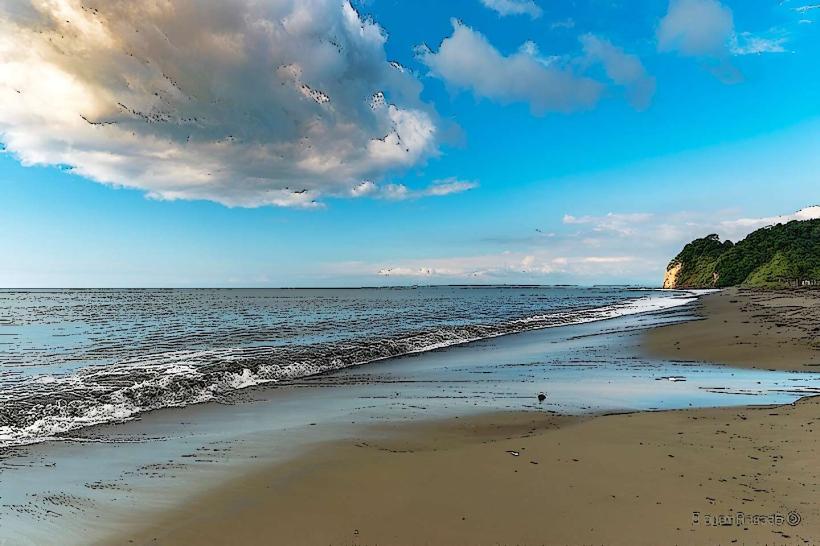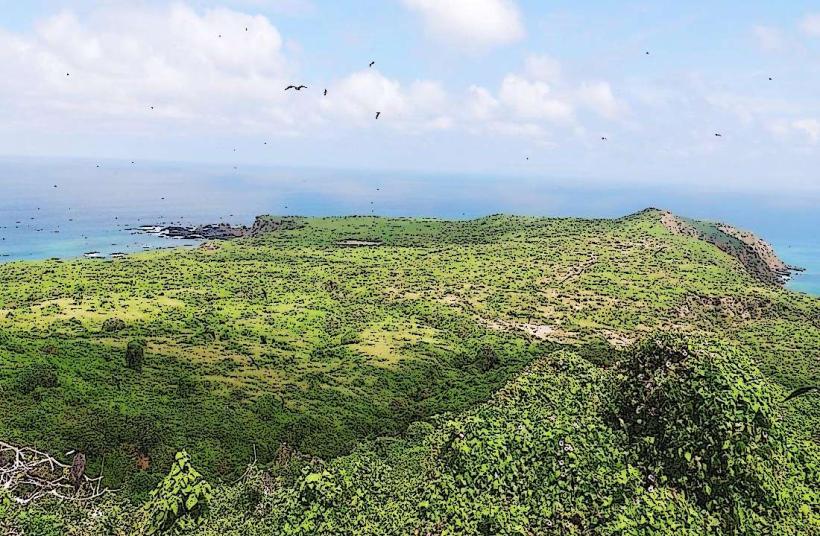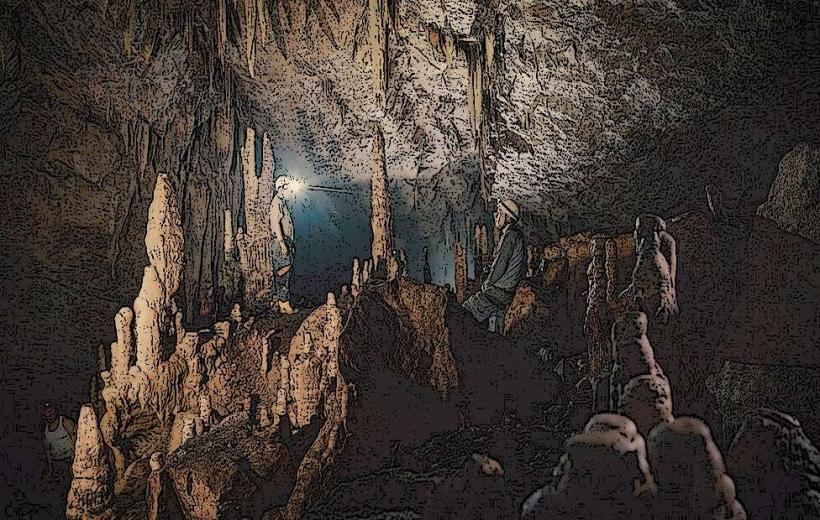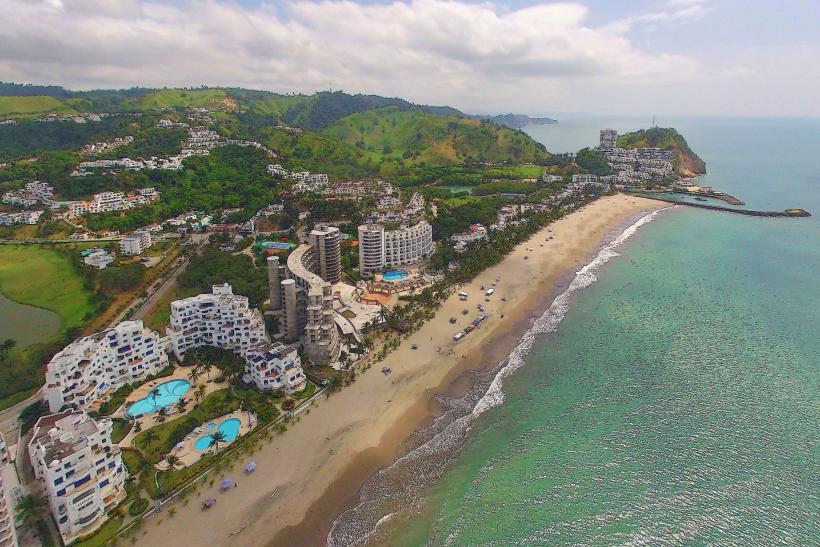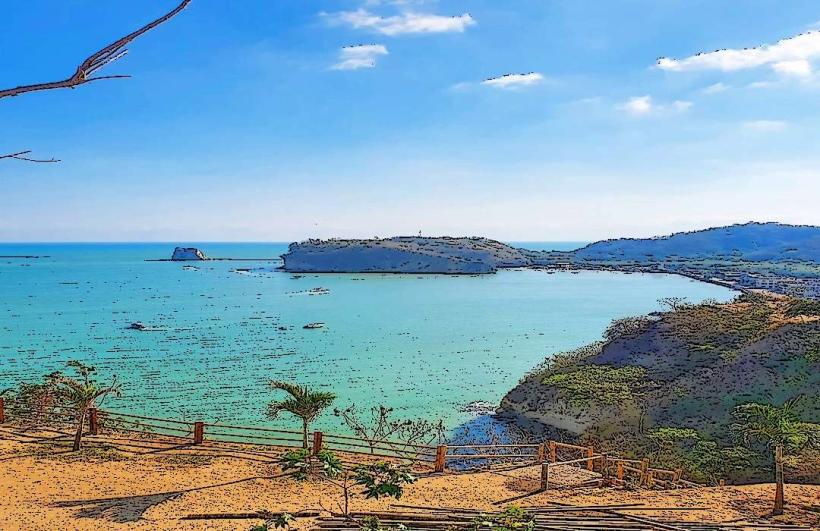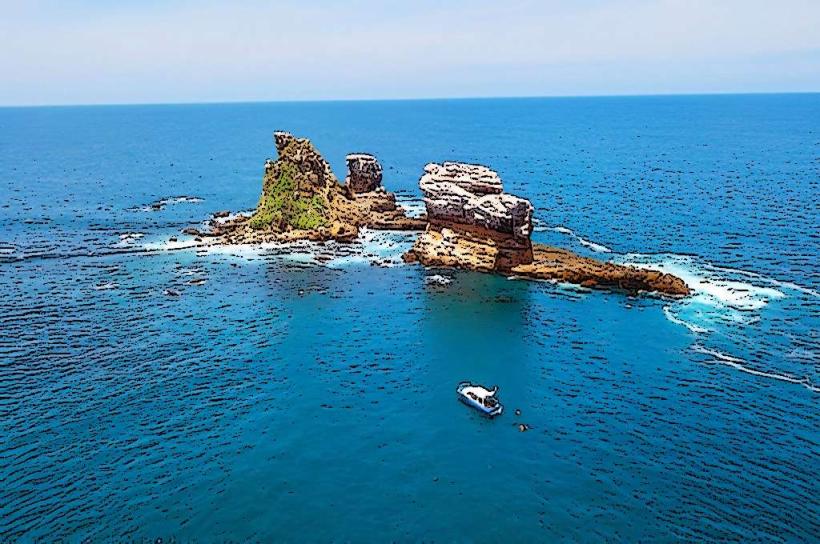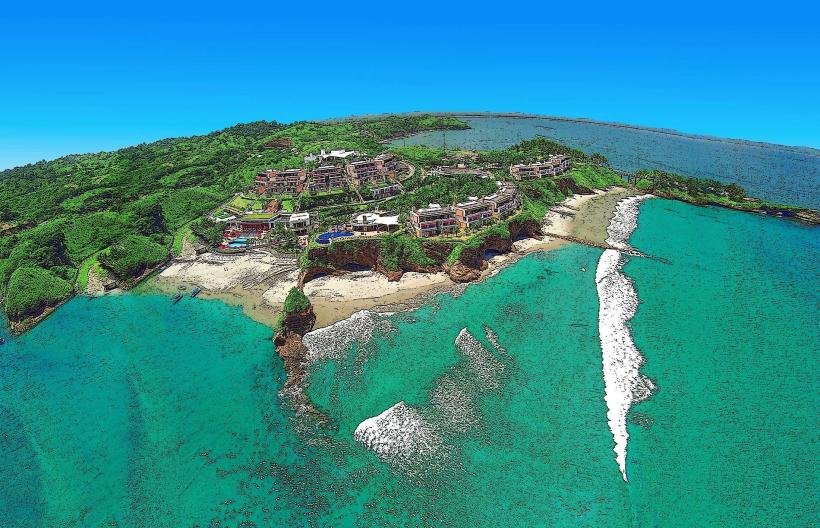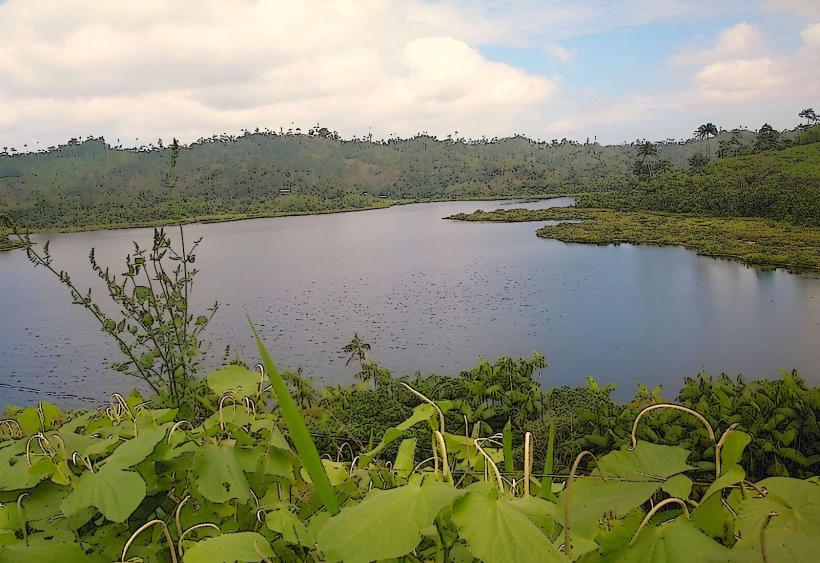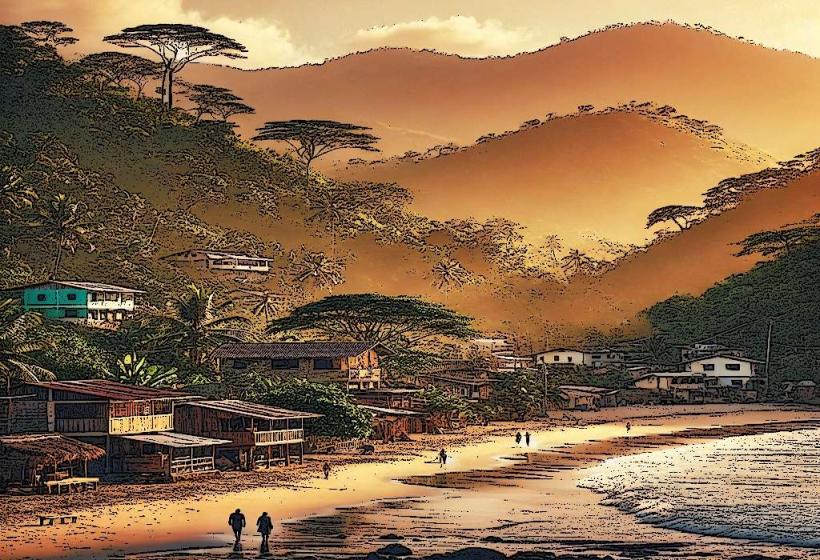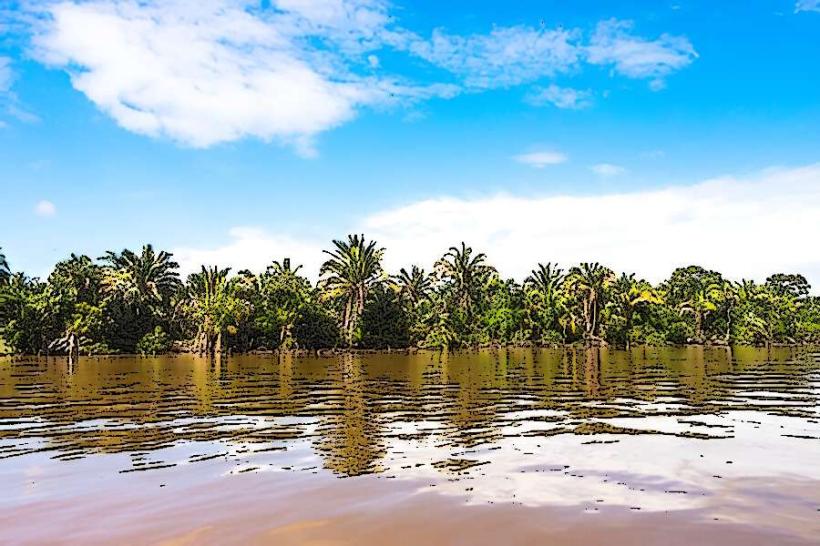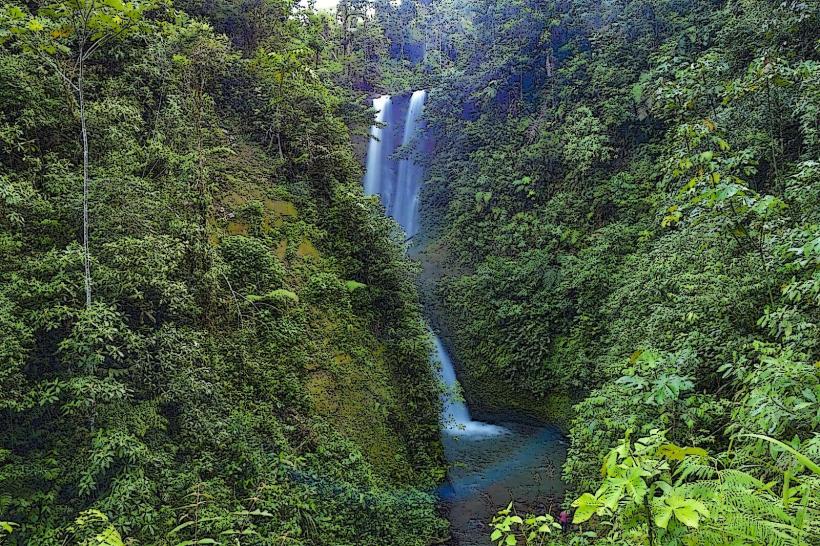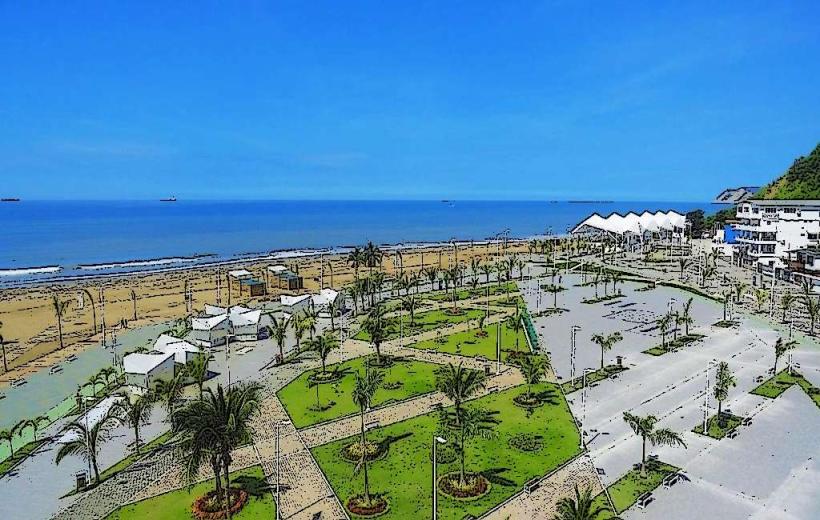Information
Landmark: Río EsmeraldasCity: Esmeraldas
Country: Ecuador
Continent: South America
Río Esmeraldas, Esmeraldas, Ecuador, South America
Río Esmeraldas – The Lifeblood of Esmeraldas Province, Ecuador
The Río Esmeraldas is one of the most important rivers in Ecuador’s coastal region, flowing through the province of Esmeraldas before emptying into the Pacific Ocean. This mighty river plays a key role in the local economy, culture, and ecosystem, offering a mix of scenic beauty, water-based activities, and cultural significance.
Key Features of Río Esmeraldas
1. Source and Route
- The Río Esmeraldas originates in the western Andes and flows northwestward through lush rainforests and tropical landscapes before reaching the coast.
- The river travels for about 200 kilometers (124 miles) before emptying into the Pacific Ocean near the city of Esmeraldas.
- Its basin covers a large area, with several smaller rivers and tributaries feeding into it.
2. Ecological Significance
- The Esmeraldas River basin is part of a diverse ecosystem with rich biodiversity, including tropical wildlife, mangrove forests, and wetlands.
- The river provides habitats for many bird species, aquatic life, and reptiles, including fish, crabs, and turtles.
- Local communities depend on the river for fishing, agriculture, and transportation, contributing to the region’s economy.
3. The River’s Role in Local Culture
- The Esmeraldas River has deep cultural and historical significance for the people of the region, especially the Afro-Ecuadorian communities living along its banks.
- The river is central to local traditions and festivals, with music, dance, and cultural ceremonies often taking place on or near the river.
- Canoe and boat travel has historically been essential for transportation and commerce in the river’s rural areas.
4. River-Based Activities
- Boating and Canoeing – The river offers scenic boat tours and opportunities for canoeing. Visitors can explore the river’s winding channels, experience its peaceful atmosphere, and enjoy views of lush forests and mangroves.
- Fishing – The river is rich in fish species, and local fishermen use traditional methods to catch fish, providing a glimpse into the lifestyle of the local communities.
- Wildlife Watching – The area around the river is home to various bird species, including herons, pelicans, and kingfishers, making it a great spot for birdwatching.
5. Esmeraldas City and the River’s Influence
- The river flows through the city of Esmeraldas, the provincial capital, and plays a major role in the urban landscape.
- In the city, the river provides a backdrop to historical and cultural landmarks, such as the Plaza Cívica and La Casa de la Cultura.
- The river is also a center for local commerce, as it connects Esmeraldas to other coastal towns and facilitates the transport of goods and services.
How to Explore Río Esmeraldas
- Boat Tours: Guided boat tours are available for visitors looking to explore the river and nearby areas, such as mangroves and rural villages.
- Fishing Excursions: Local fishermen offer tours for those interested in learning about traditional fishing methods or simply experiencing a day on the water.
- Hiking and Eco-tours: Several eco-tourism agencies offer guided tours to explore the natural environment around the river, focusing on wildlife, plant life, and local culture.
Best Time to Visit
- Dry Season (June – September): The weather is ideal for outdoor activities, with less rain and more opportunities for boat trips and wildlife observation.
- Rainy Season (October – May): The river is fuller and more powerful, which can be a sight to see, but it may make navigation and certain activities more challenging.
Conclusion
The Río Esmeraldas is a vital and scenic river that plays an essential role in the ecology, culture, and economy of Ecuador’s Esmeraldas Province. Whether you are exploring the river by boat, enjoying its surrounding landscapes, or learning about the traditional lifestyles of local communities, the Esmeraldas River offers a rich, immersive experience for visitors who seek to connect with the natural and cultural heart of Ecuador’s northern coast.

